The Intel Skylake i7-6700K Overclocking Performance Mini-Test to 4.8 GHz
by Ian Cutress on August 28, 2015 2:30 PM ESTGaming Benchmarks: Discrete Graphics
Our regular benchmarks for processor reviews consist of Alien Isolation, Total War: Attila, Grand Theft Auto V, GRID: Autosport and Middle Earth: Shadow of Mordor. Rather than the full run of graphics cards from $70 and up, we are limiting here to just the low-end testing on integrated graphics and a full on ASUS GTX 980 Strix assault.
NVIDIA GTX 980
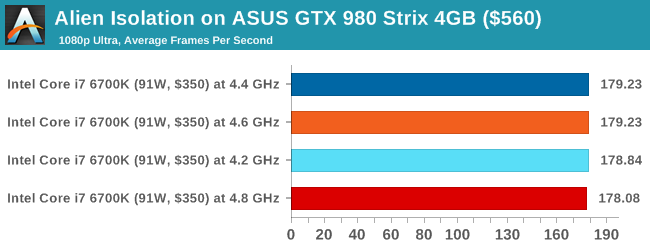
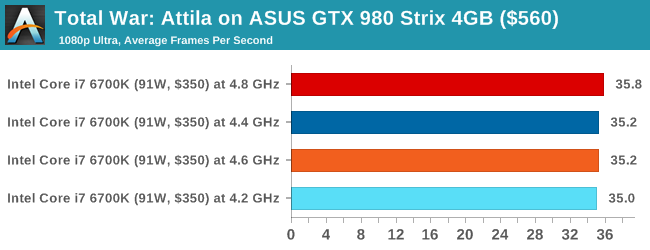
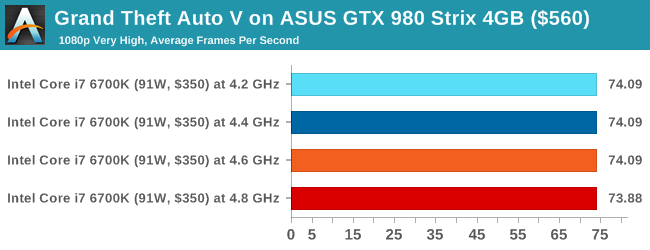
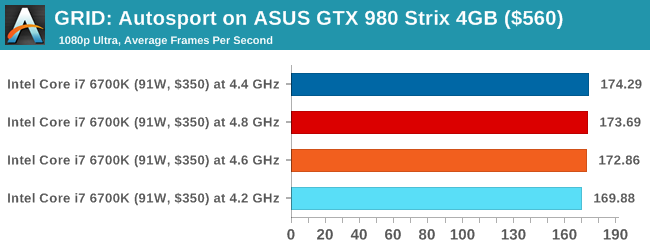
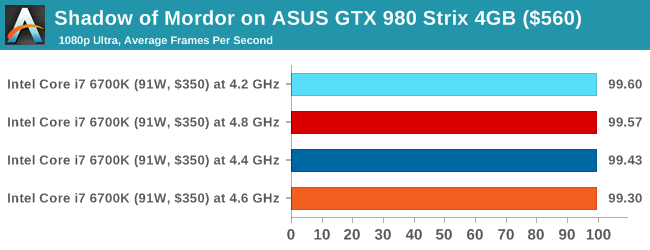
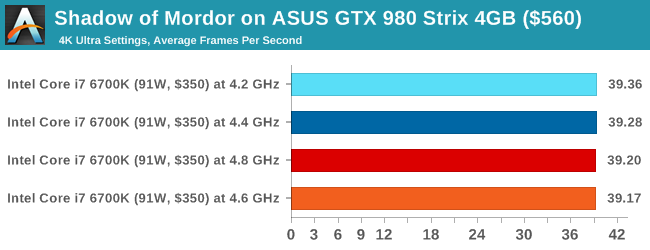
Conclusions on NVIDIA GTX 980
In our discrete test, it is clear that there is not much difference between the games tested.


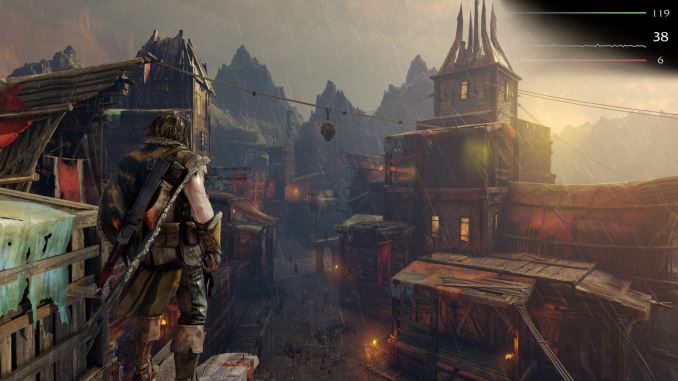








103 Comments
View All Comments
bill.rookard - Friday, August 28, 2015 - link
I wonder if not having the FIVR on-die has to do with the difference between the Haswell voltage limits and the Skylake limits?Communism - Friday, August 28, 2015 - link
Highly doubtful, as Ivy Bridge has relatively the same voltage limits.Morawka - Saturday, August 29, 2015 - link
yea thats a crazy high voltage.. that was even high for 65nm i7 920'skuttan - Sunday, August 30, 2015 - link
i7 920 is 45nm not 65nmCellar Door - Friday, August 28, 2015 - link
Ian, so it seems like the memory controller - even though capable of driving DDR4 to some insane frequencies seems to error out with large data sets?It would interesting to see this behavior with Skylake and DDR3L.
Also it would be interesting to see in the i56600k, lacking the hyperthreading would run into same issues.
Communism - Friday, August 28, 2015 - link
So your sample definitively wasn't stable above 4.5ghz after all then.......Haswell/Broadwell/Skylake dud confirmed. Waiting for Skylake-E where the "reverse hyperthreading" will be best leveraged with the 6/8 core variant with proper quad channel memory bandwidth.
V900 - Friday, August 28, 2015 - link
Nope, it was stable above 4.5 Ghz...And no dud confirmed in Broadwell/Skylake.
There is just one specific scenario (4K/60 encoding) where the combination of the software and the design of the processor makes overclocking unfeasible.
Not really a failure on Intels part, since it's not realistic to expect them to design a mass-market CPU according to the whims of the 0.5% of their customers who overclock.
Gigaplex - Saturday, August 29, 2015 - link
If you can find a single software load that reliably works at stock settings, but fails at OC, then the OC by definition is not 100% stable. You might not care and are happy to risk using a system configured like that, but I sure as hell wouldn't.Oxford Guy - Saturday, August 29, 2015 - link
Exactly. Not stable is not stable.HollyDOL - Sunday, August 30, 2015 - link
I have to agree... While we are not talking about server stable with ECC and things, either you are rock stable on desktop use or not stable at all. Already failing on one of test scenarios is not good at all. I wouldn't be happy if there were some hidden issues occuring during compilations, or after few hours of rendering a scene... or, let's be honest, in the middle of gaming session with my online guild. As such I am running my 2500k half GHz lower than stability testing shown as errorless. Maybe it's excessively much, but I like to be on a safe side with my OC, especially since the machine is used for wide variety of purposes.